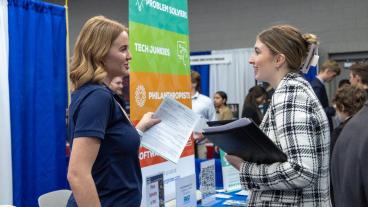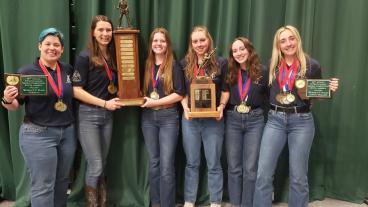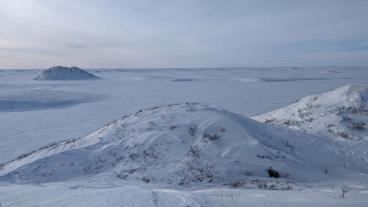David LaPorte, a master’s student in the Department of Geology and Geological Engineering, is working to help mitigate landslide risk in communities in Guatemala thanks to a Fulbright grant.
In 2015, a devastating landslide in a Guatemala City ravine killed an estimated 350 people in the settlement of El Cambray II, highlighting the urgent need for more research on landslide risk management.
LaPorte is conducting research at the Universidad de San Carlos de Guatemala, with the cooperation of Coordinadora Nacional para la Reducción de Desastres, as part of a project to evaluate landslide risk management in precarious settlements of Guatemala City’s metropolitan area and develop cost-effective solutions.
“These settlements are built on the slopes of steep ravines and are populated by the area’s most economically vulnerable population,” explained LaPorte, whose ultimate goal is to help those who have little choice but to live in at-risk areas by studying ways to better manage these natural hazards.
To do this, LaPorte is evaluating the current landslide risk management initiatives put in place by Guatemalan government agencies and NGOs, such as risk-reduction tools and educational programs. “I plan to evaluate the effectiveness of some of these initiatives through a study of risk perception and behavior of the inhabitants of at-risk communities,” he said. Currently, there are no statistics in this field, which LaPorte’s research is working to address. Communities will be surveyed before and after risk-communication strategies are implemented, with the ultimate goal of improving initiatives to encourage risk-reducing behavioral change.
One of the biggest challenges LaPorte has faced during his three months in Guatemala thus far has been breaking into the existing network of researchers and organizations, many of whom have been working on this issue for years. “As an independent researcher, it has been challenging to catch up on the understanding of the way things are done here, and the recent history of risk-management initiatives in the settlements,” he said. But LaPorte said everyone he has collaborated with has been very helpful, and finds this opportunity to experience a new community and culture very rewarding.
“The core of the Fulbright program is based on increasing cultural exchange and mutual understanding between people in the US and those abroad,” he said. “Being able to dedicate ten months of my master’s degree to not only my thesis project field work, but also to this cultural exchange, is such a joy.”
LaPorte is confident that the experience will help him “ become a more globally competent citizen and engineer.”
“It is work that I love, and that has been made possible by the Fulbright grant.”
Contact:
Agata Bogucka, Communications Manager, College of Earth Resource Sciences & Engineering | 303-384-2657 | abogucka@mines.edu
Mark Ramirez, Managing Editor, Communications and Marketing | 303-273-3088 | ramirez@mines.edu



